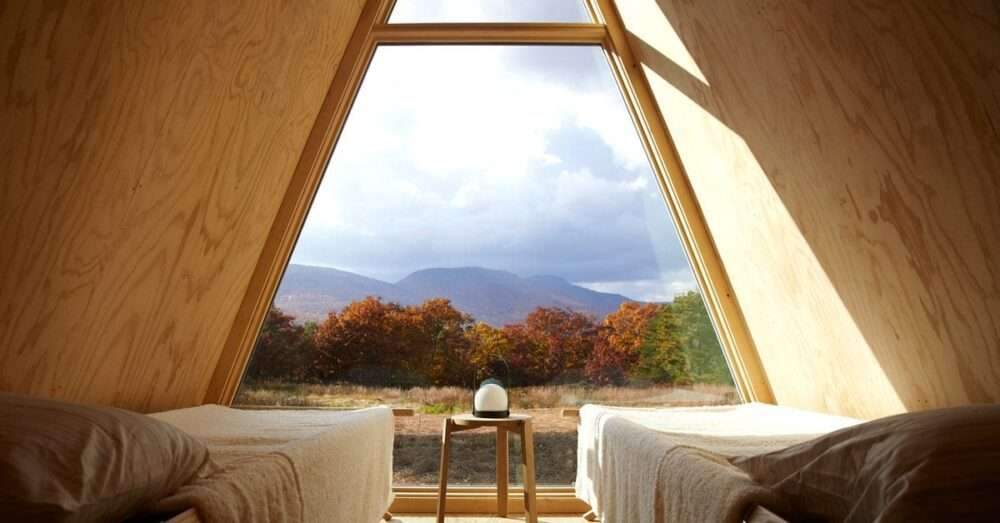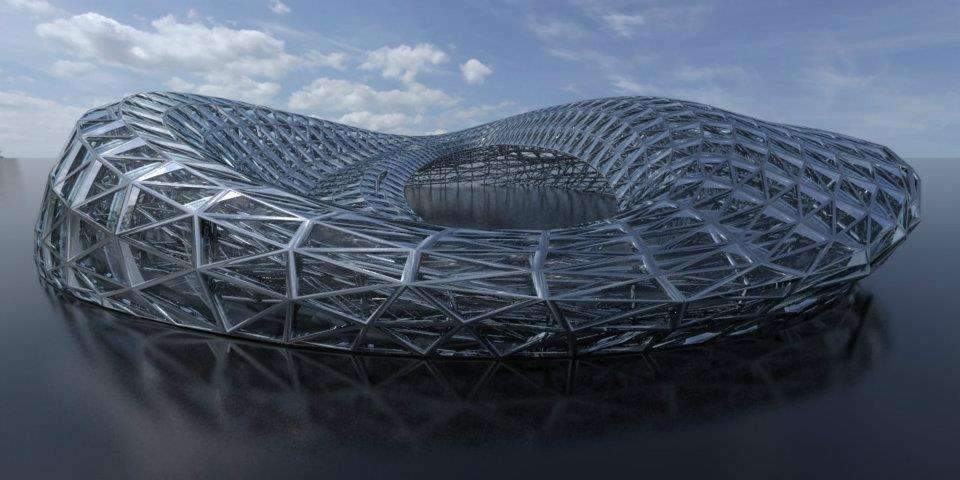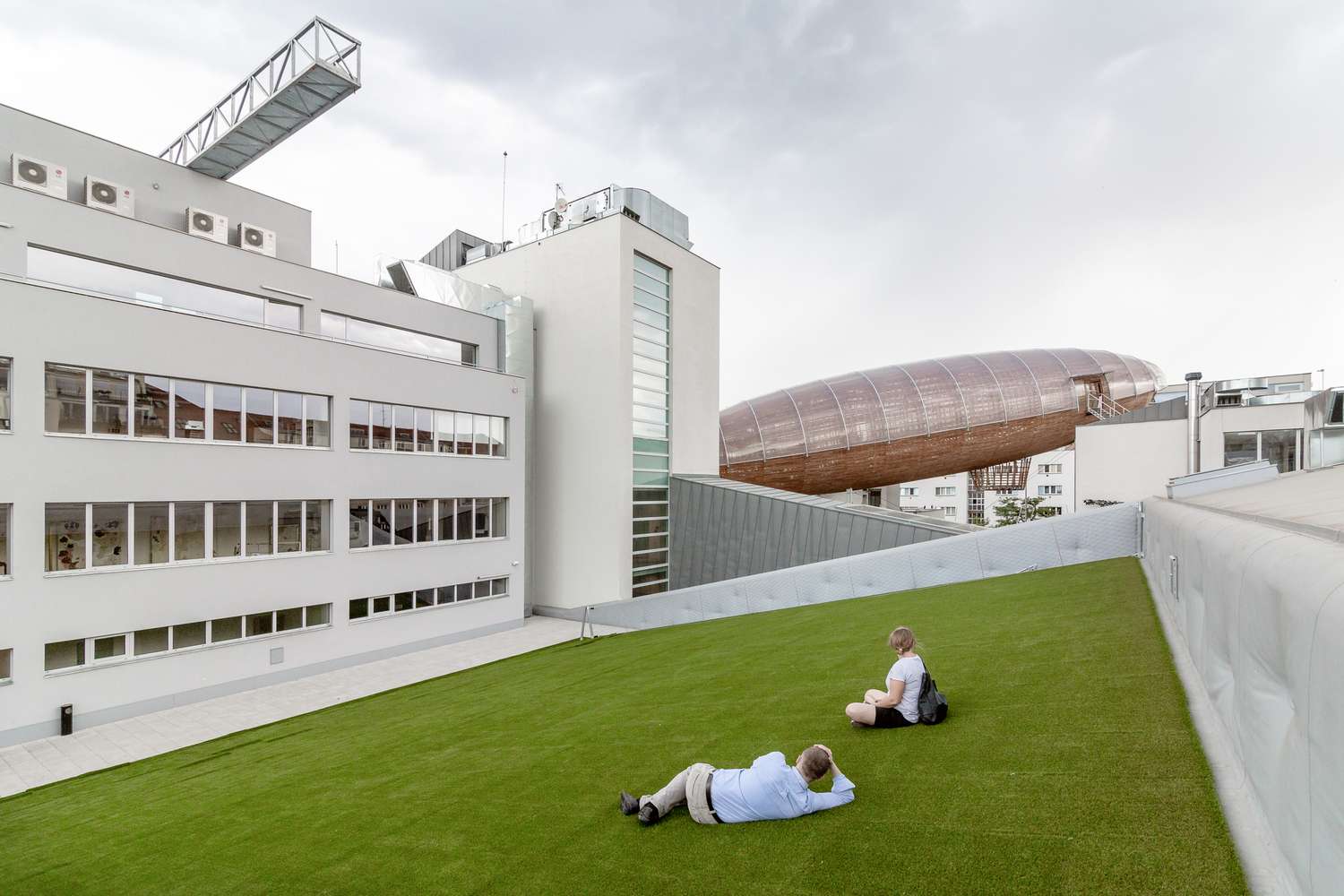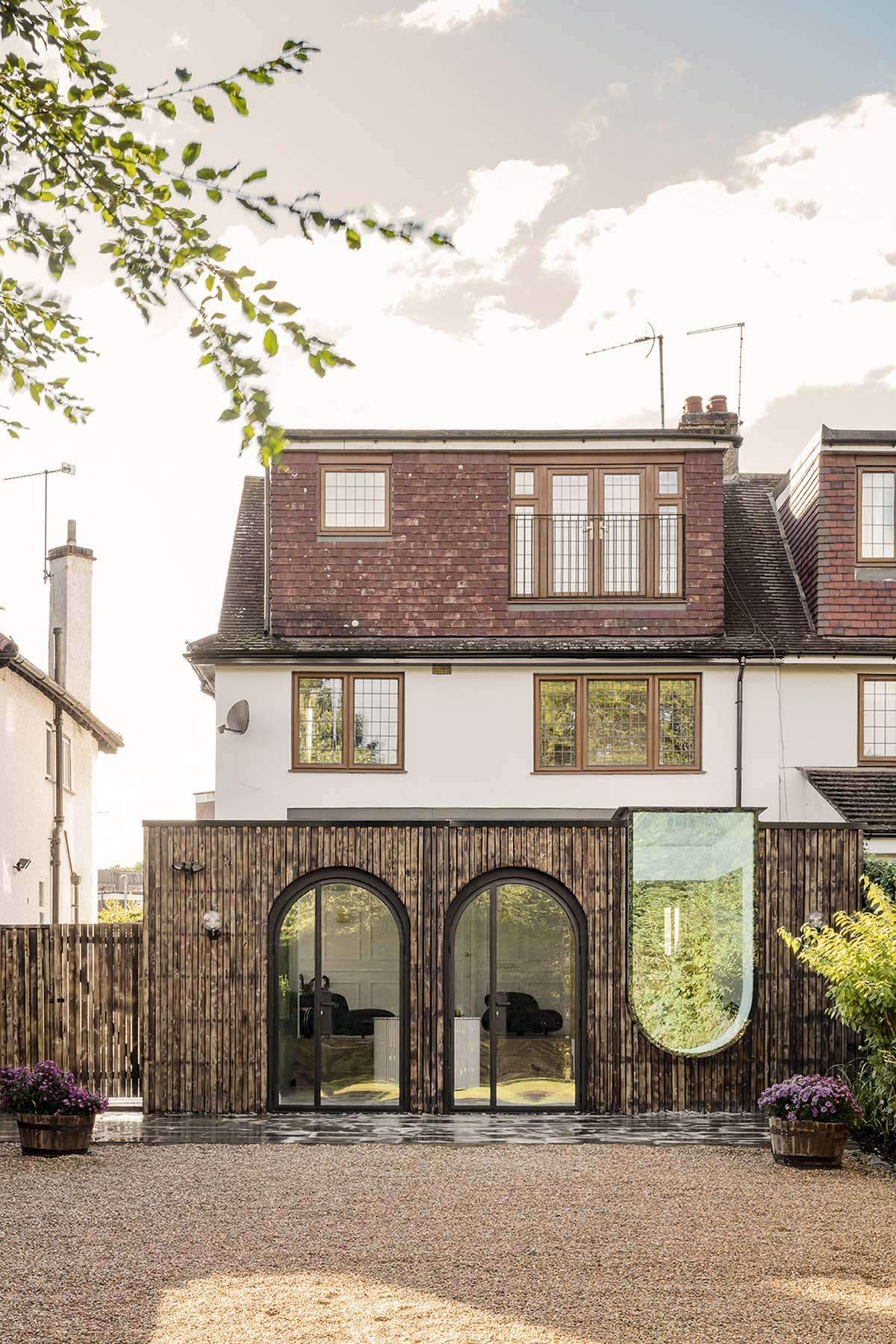Eight guesthouse interiors designed for peace and escapism
Eight guesthouse interiors designed for peace and escapism
Despite their temporary nature, guesthouses can feature distinctive designs created to be remembered for longer than just during their occupants’ stay.
From a bird nest-style retreat in Namibia to a micro dwelling in South Korea, here are eight guesthouses with impactful interiors from across the globe.
This is the latest in our lookbooks series, which provides visual inspiration from Dezeen’s archive. For more inspiration see previous lookbooks featuring gardens with swimming pools, cave-like interiors, and striking accent walls.
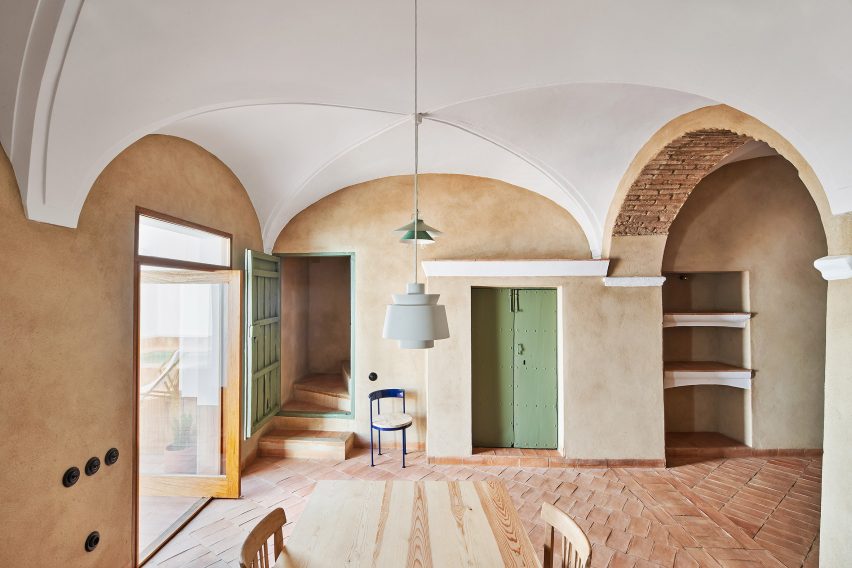
La Hermandad de Villalba, Spain, by Lucas y Hernández-Gil
Spanish studio Lucas y Hernández-Gil sought to honor the original architecture of this eighteenth-century building, which was renovated to feature decorative doorways and original arched ceilings.
Also, Nestled in a wine-growing town in Spain’s Extremadura region, the guesthouse takes visual cues from its site, with hues of deep red and pale green that nod to the town’s natural terrain and surrounding vineyards.

Den Cabin Kit, USA, by Den Outdoors
Prefabricated in New York, Den Cabin Kit is a flat-packed kit-of-parts for a steeply pitched cabin, it is designed to be assembled in a few days.
Cabin-design company Den Outdoors created the structure to cater to a guest, study, or yoga studio. Slanted wooden walls and a single triangular window create a cozy atmosphere inside.
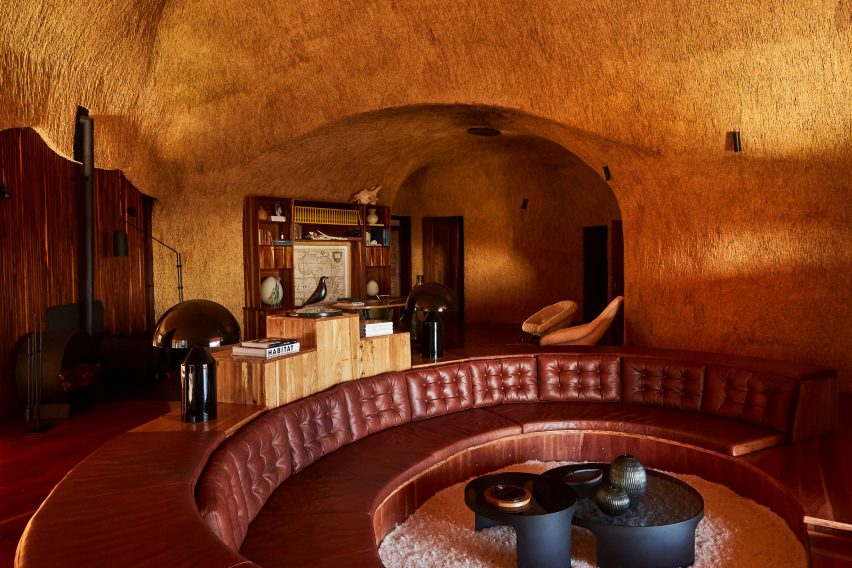
The Nest at Sossus, Namibia, by Porky Hefer
The Nest at Sossus is an off-grid guesthouse in Namibia with a thatched facade informed by the amorphous shape of bird nests.
Moreover, Thatching also features on the interior, which South African designer Porky Hefer created with bulbous protrusions and built-in furniture to mimic the stacked components of a nest.
Pieces include a sunken Chesterfield-style sofa upholstered in oxblood-colored leather.
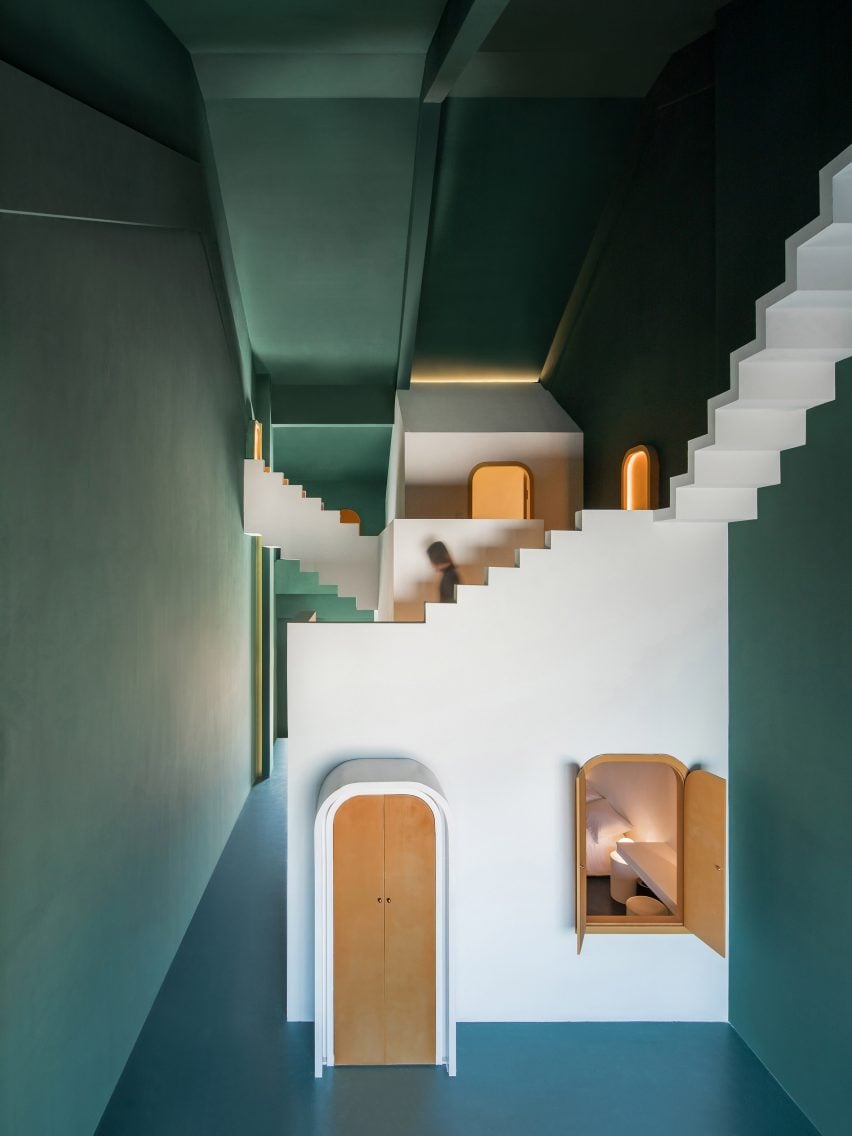
Dream and Maze, China, by Studio 10
Shenzhen-based Studio 10 designed a pair of guest rooms in Guilin, China. It takes cues from the optical illusions of the seminal Dutch graphic artist MC Escher.
Also, Called Dream and Maze, the rooms feature color-coded arched doorways and disorientating anti-gravitational staircases built within a seven-meter-high structure with a pitched roof.
“The challenge was in keeping the balance between the practical need of a hotel suite and the illusionary. The spatial effect we wanted to achieve,” the studio told Dezeen.
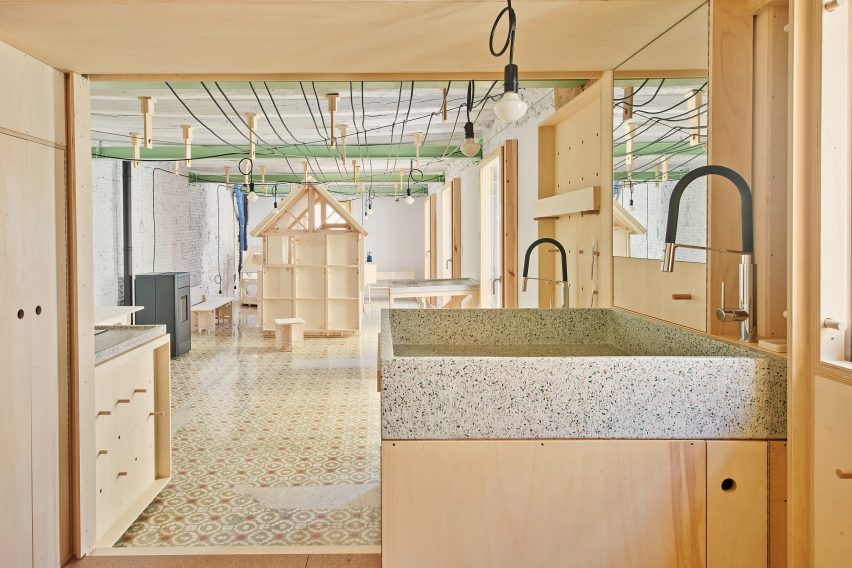
Alfondac, Spain, by Aixopluc
Catalan studio Aixopluc filled a guest apartment above its offices with modular furniture using DIY techniques.
Named after an Arabic word describing a place for both guests and for storing goods. Alfondac features various exposed appliances and living areas amalgamated into one space.
Furthermore, “This iteration is an exploration of the potential benefits of having different activities and their smells – shit, lavender soap, pee, escudella [a type of Catalan stew], incense, linen sheets after sex, hyacinth flowers, baby’s poo and half-full glasses of Priorat wines – coexist rather than being segregated,” said Aixopluc.
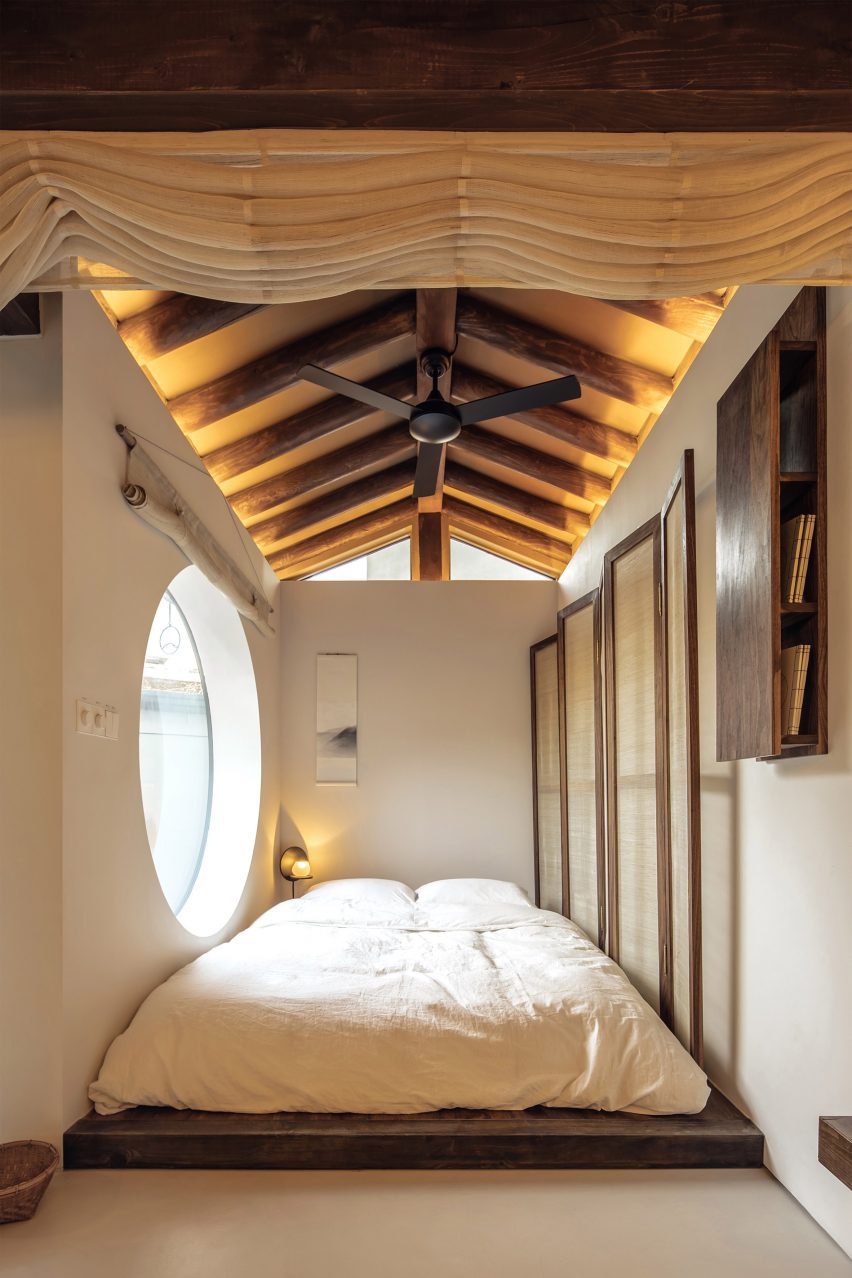
Nuwa, Korea, by Z_Lab
Nuwa is a tiny guesthouse in northern Seoul that measures under 30 square meters. Local studio Z_Lab renovated a traditional Korean home, known as a hook. To create the apartment out of a single room.
A porthole window inserted next to the bed provides views of the surrounding garden. While a sunken bath and walnut and stone accents define the rest of the space.
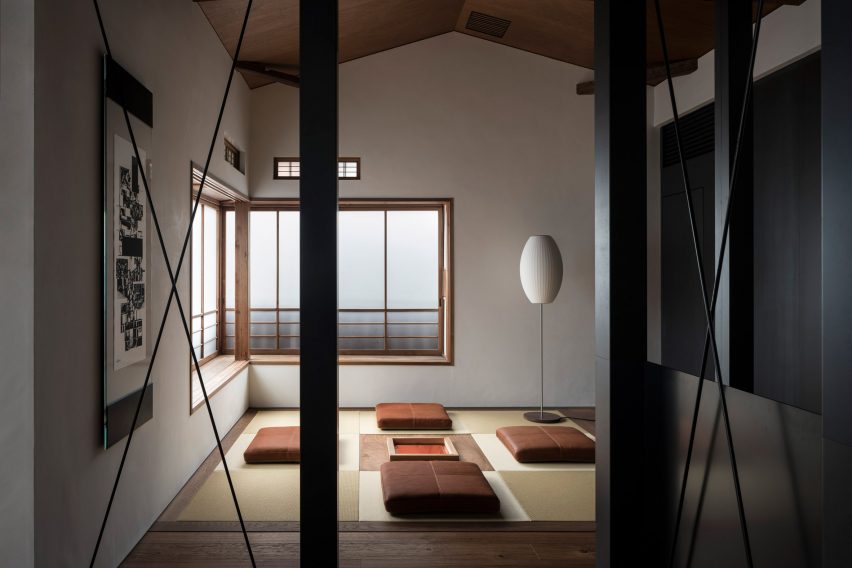
Trunk House, Japan, by Trunk and Tripster
Hailed by its designers as containing Tokyo’s smallest disco. This one-room hotel in the city’s Kagurazaka neighborhood features a miniature nightclub with a bright red interior. A curved bar, and an illuminated dance floor.
Additionally, Hotel brand Trunk collaborated with design studio Tripster to create the interiors within a traditional 70-year-old geisha house. Living spaces have muted palettes. Also, Including a tearoom with tatami mats arranged around a sunken fireplace.
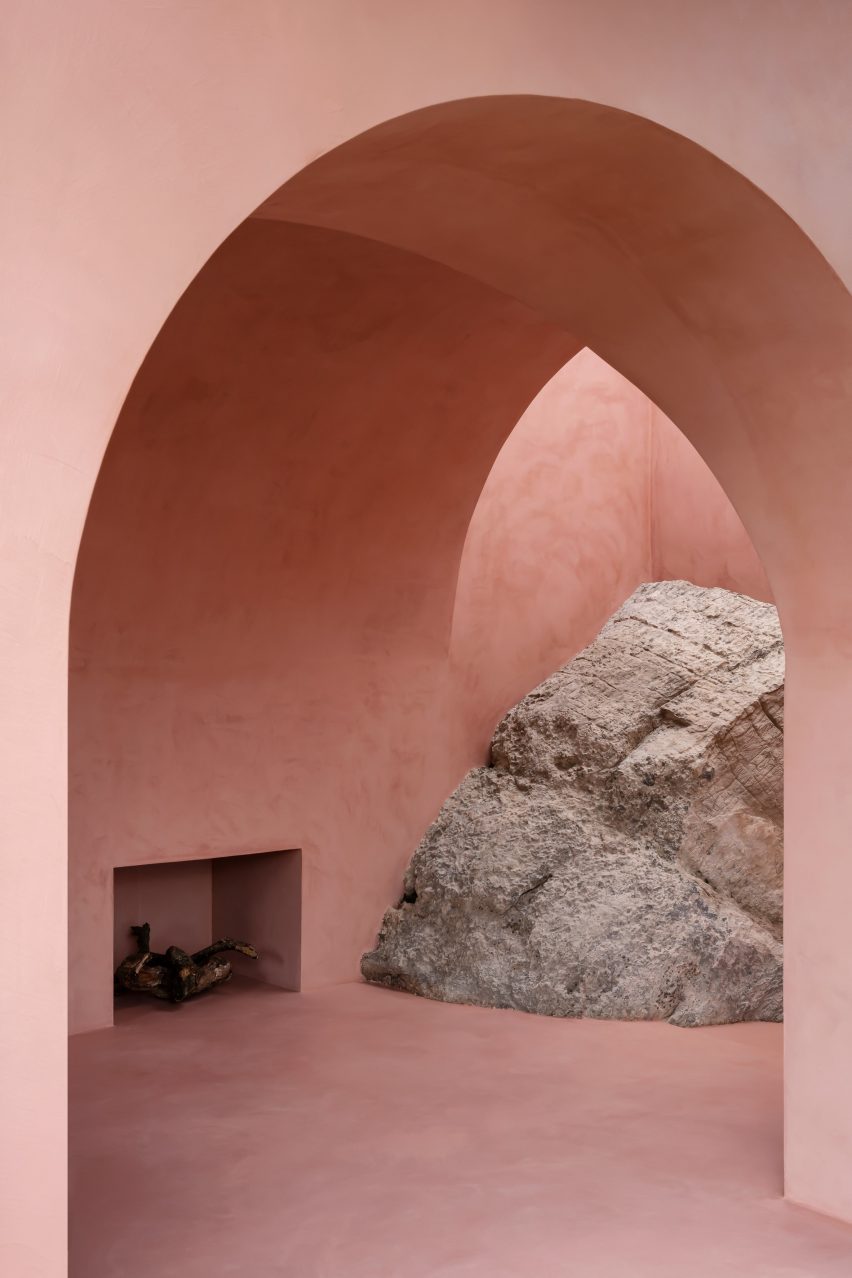
The Olive Houses, Mallorca, by Mar Plus Ask
Architecture studio Mar Plus Ask designed a pair of guesthouses in the Mallorcan mountains to celebrate the craggy boulders that jut through their walls.
Moreover, The Olive Houses are off-grid dwellings created for solo creatives as a silent refuge, sloping cave-like walls were rendered exclusively in blush-pink stucco to complement the pale green shade found on the underside of an olive tree leaf.
“To us, the [boulders] became a piece of art – suddenly the house was more about sculpting its backdrop and being its lightbox,” explained the studio.
Finally, Read more on Archup:

